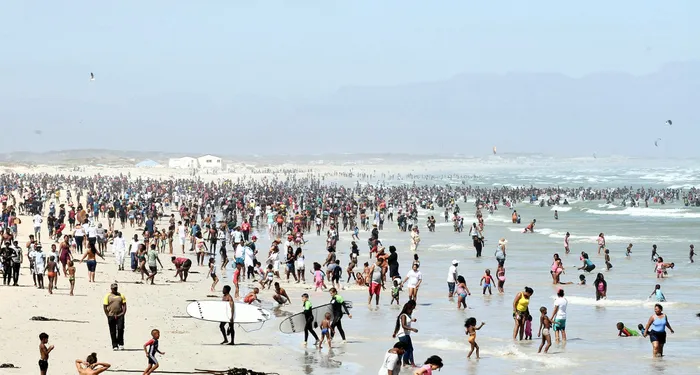SA population outpacing the country's economy by a wide margin

The country is heading for a crisis based on mid-year population estimates alone as the growth in population is outpacing economic growth by a wide margin. File photo: Bheki Radebe / African News Agency (ANA) The country is heading for a crisis based on mid-year population estimates alone as the growth in population is outpacing economic growth by a wide margin. File photo: Bheki Radebe / African News Agency (ANA)
Cape Town - The country is heading for a crisis based on mid-year population estimates alone as the growth in population is outpacing economic growth by a wide margin.
According to Statistics SA, the country's population has grown by more than 1million people in the last year, a stark contrast to the 3.2% contraction in the economy in the first quarter of this year.
Dawie Roodt, chief economist at the Efficient Group, said that South Africa was not prepared for the coming years. “Unless the government is prepared to make some very difficult political decisions, the country will not be able to deal with the growing workforce.”
South Africa’s current population stands at 58.78million people, compared with 57.73million recorded in the middle of last year. This rise can be attributed to increased life expectancy, decreasing infant mortality rates, a higher rate of survival from Aids and other diseases, and immigration to the country.
Roodt said for the economy to remain stable, it needs to grow at the same rate as the population. To maintain current employment levels, the economy would need to grow by more than 2%. The 3.2% GDP decrease and current trends indicate that the economy might not even grow as much as 0.5% this year.
The latest numbers show that the unemployment rate is 27.6%.
Owen Crankshaw, a professor at the University of Cape Town’s Department of Sociology, said while this number was very high, it was stable at the moment.
Still, he sees problems for young people with low-skill levels searching for jobs in the coming years. According to him, the number of jobs that do not require high levels of education or training (domestic workers, gardeners, manual labourers) has not grown as fast as the number of jobs that require higher education levels (managerial positions and technical jobs).
Crankshaw added that the demographics of employment continued to carry the legacy of apartheid. “There is an oversupply of low-skilled workers for the relatively small number of low-skilled jobs that are available. The same is true for middle-income manual jobs.
"This mismatch of skills is another important cause of unemployment among low-skilled workers who are also mostly young and black.”
Roodt had similar predictions for who would suffer the most if the economy were to further deflate.
Roodt added that many companies saw the country, with a faltering economy, large tax burden and highly organised labour unions, as a risky place.
However, he anticipated an uplifting future for Cape Town’s tech sector. Because tech businesses have a relatively low start-up cost and can operate anywhere in the world, they would be able to withstand the rocky financial climate.
While the reports remained bleak for the country as a whole, the Western Cape did stand out in a number of areas. The province has the highest life expectancy for both males and females, with an average number of 65.7 years for men and 71.1 years for women. Additionally, the fertility rate was declining at a level that was consistent with cities across the globe as families now average two children.
The province continued to have one of the lowest unemployment rates in the country and attracted the second-highest number of migrants after Gauteng.
@m_wench